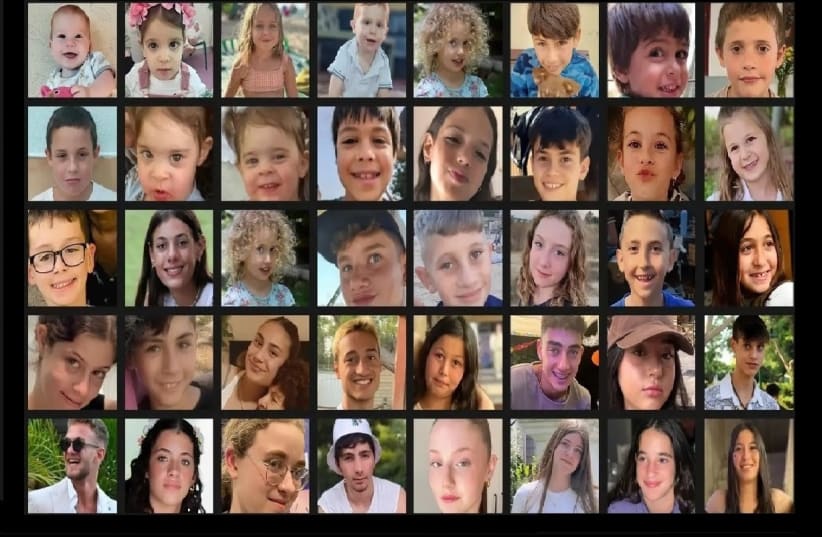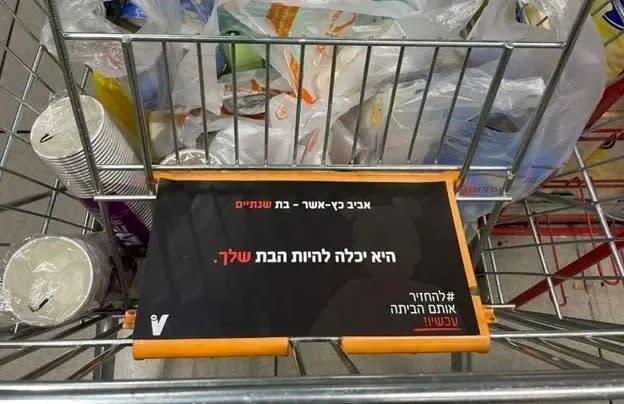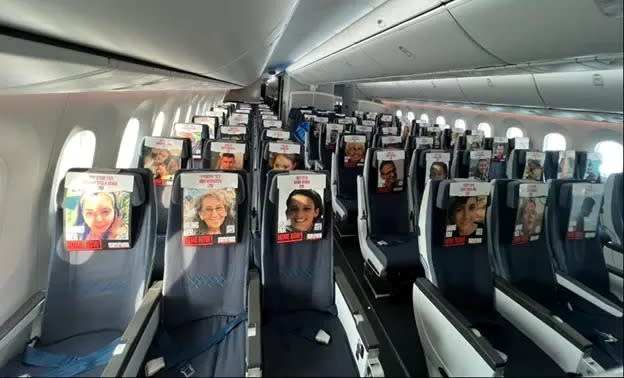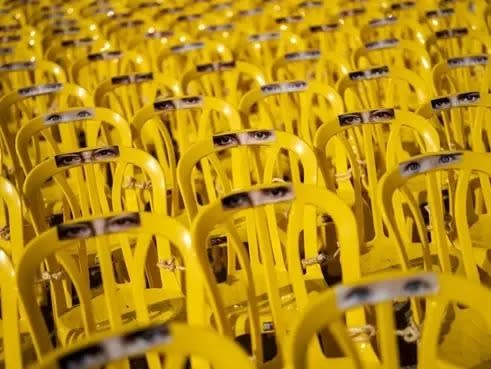From October 7, marketers and advertisers entered a cautious, moderate mode, a kind of understanding that now is not the time for colorful and bold street banners and advertising videos, even though right now, the shopping month is taking place, which is an annual international "sales festival", perhaps the biggest in the year. The many Israeli marketers, importers, and manufacturers eagerly awaiting it were forced this year to quiet every hint of indulgence.
Just before the deal with the abductees goes into effect and some of them, at least according to the great hope, return safely to the waiting arms of their families, we spoke with Motti Elbaz, CEO of the global strategic consulting firm Success Code, specializing in advising and guiding companies and organizations in the fields of strategy, marketing, and innovation in Israel and around the world, who researched the topic for us. Is it right to try to create solidarity and link the company's products to the security situation, or is it better to maintain industrial quiet in the advertising and marketing sector to avoid being perceived as cynically using a very, very, very sensitive issue, such as the return of the abductees.
"A significant portion of the public perceives reputation marketing activities as cynical that are intended solely to persuade us to purchase products indirectly, therefore touching on such a sensitive issue may be a risky move, yet it will be in favor of the companies that have nevertheless chosen to promote the issue of kidnapped individuals as a courageous move", says Elbaz.
"It seems that this time the actions taken were truly authentic and with a sincere goal to utilize every possible means to create pressure to bring the kidnapped individuals back home. The top executives of the major companies in the industry understood their moral obligation to address the tragic event we found ourselves in, even if it does not translate into money".
Elbaz provides us with examples of initiatives that have promoted leading brands in order to raise awareness for the return of the kidnapped and explains how each initiative successfully touches upon our emotional senses and whether it generates a sense of authenticity, a willingness to help without profit motives, and trustworthiness.
Timing the minutes
The international food chain McDonald's, which operates extensively in Israel, is displaying images of the kidnapped individuals on the screens used daily for advertising meals in all its branches throughout the country.
"It is to the credit of the company that this is another move that joins the introduction of digital counters produced by the Kidnap Headquarters and integrated into the company's websites that count the duration of time our kidnapped individuals are in captivity, as well as the conversion of a number of branches in the south to provide free meals to soldiers and hospitals, a move that has aroused strong anti-Semitic reactions against the brand worldwide and has not yet led to its cessation", Elbaz mentions.
"This could have been your child"
In the world of marketing, one of the correct and influential ways to convey a message is to create associations that the consumer understands instantly, so that the message is so sharp and clear without the need for explanations. A survey that is easy to connect to.
This approach was adopted by the "Victory" supermarket chain when it launched a powerful campaign featuring photos of children kidnapped on supermarket carts, on the child seat that we all know as the seat for children who come shopping with their parents.
Elbaz explains the powerful move as follows: " 'Victory' conveys the message in a chilling move using the children's seat that we all know on the supermarket cart, on which the names of all the kidnapped children were stuck in English and Hebrew under the provocative message: "This could have been your child" - Boom, a punch in the gut!"
Waiting for you at home
In a sharp and clear message, like the one we presented earlier, "Tnuva", the company so identified with the Israeli public for decades, also used it. They chose to take the iconic cottage cheese packaging found in almost every fridge and including the symbol of home, and published on it the inscription "Waiting for you at home".
Elbaz describes the initiative as a sharp and clear message: "Such a precise combination between the message behind the brand and the situation of lockdown we are in, and advertising in such a strategic place that does not allow us to forget each time we reach out to take it out of the fridge".
The most at home in the world
El Al, Israel's national airline, just this year, for the first time since its inception, recruited an Israeli spokesperson so identified with a typical Israeli family with a strong connection to Israel (Hanin Ben Ari), and whose slogan - "The most at home in the world" is associated with the feeling of "returning home" in all of us, to raise awareness for the return of the captives when she placed pictures of the captives on the seats of all cargo planes that brought equipment to IDF soldiers.
"The pictures of the empty plane with the pictures of the 240 captives were circulated both in Israel and worldwide and caused extensive and emotional media coverage", concludes Elbaz.
The clock stops for the queen
The food chain AM:PM decided on October 29, moments before the transition to winter time, not to update the clocks at dozens of its branches in Israel, which are so identified with the brand. In their place, the inscription reads: "Don't move the clock until everyone returns home safely".
Elbaz sharpens the power of the move: "Creating psychological associations is a critical component in the field of marketing. We all feel that our year has frozen after 7.10, so stopping the company's symbolic time is definitely relevant and creates identification with the situation".
Their seat is still empty
The image of the empty chair recurs time and time again in Jewish and Israeli culture as a symbol of absence, loss, or hope for the return of the missing, from Elijah the Prophet's chair in the Passover Seder and in general.
As part of a collaboration with the Families of the Kidnapped headquarters, the company "Keter" decided to produce its iconic chairs in yellow, the international color associated with the gift to the kidnapped and captives, and placed them in public and private spaces.
Elbaz shared that Keter's initiative is not left as a unique display but one that is scattered to remind them everywhere: "The yellow chairs associated with the gift to the kidnapped can be seen in countless displays in offices, building entrances, factories, museums, hospitals, schools, universities, and more. In addition, Keter allows the general public to purchase such a chair independently with the assurance that all its proceeds will be transferred as a donation to the Families of the Kidnapped".
In the name of humanity
In conclusion, Moti Elbaz asks to add a personal note: "I really want to believe that we will see many more initiatives like this from other companies. Initiatives that have no hidden agenda and no desire to gain brownie points with the public. We have so many divisions in the country on a wide variety of issues, but in this particular issue, there is full consensus, only in the name of one thing: in the name of humanity".







